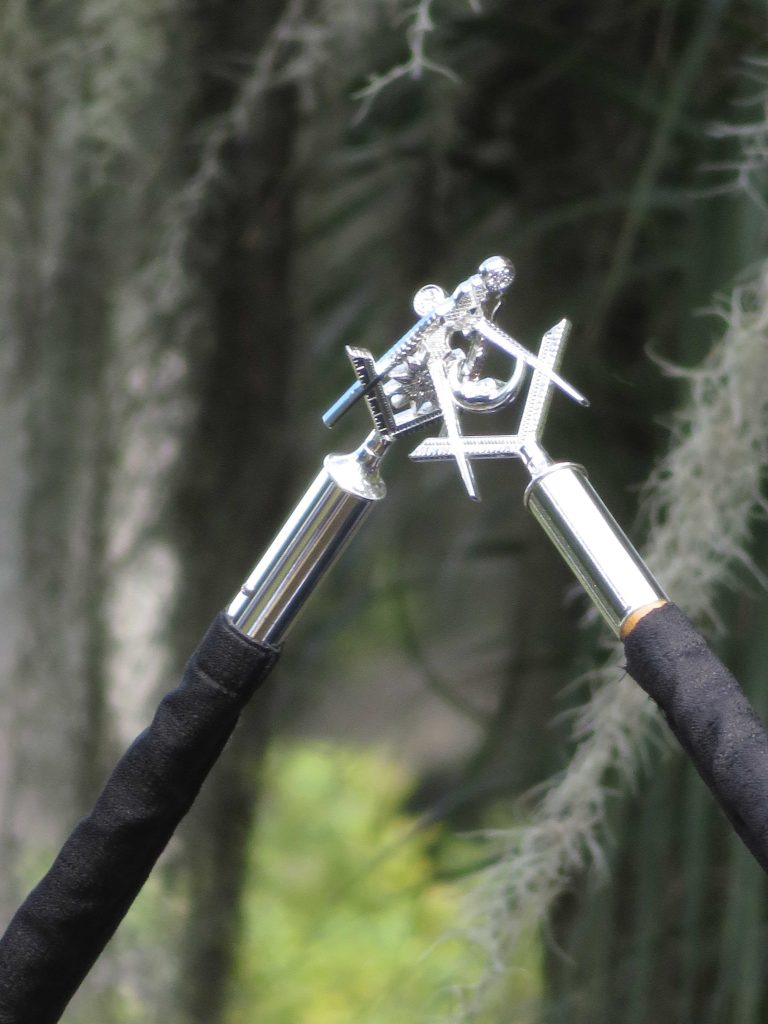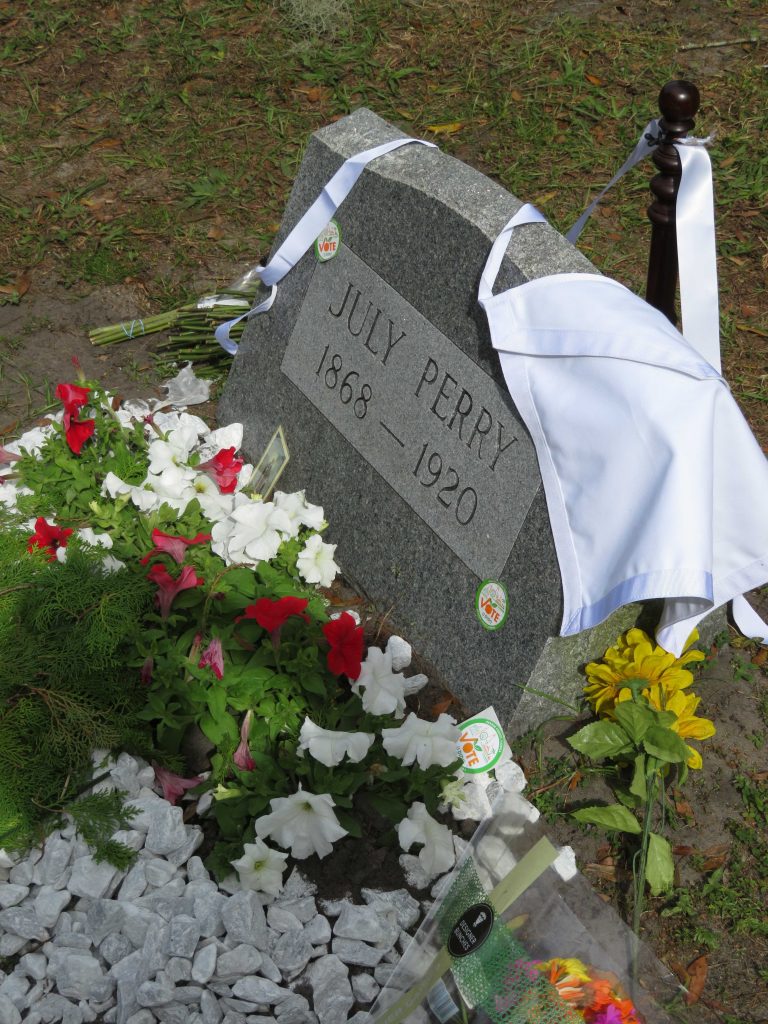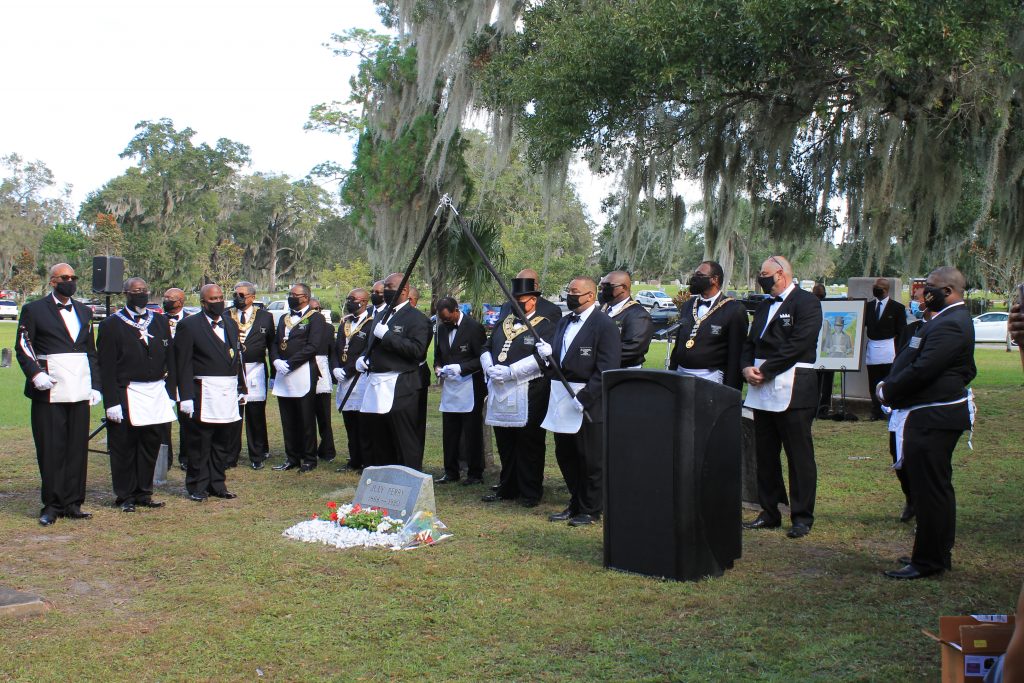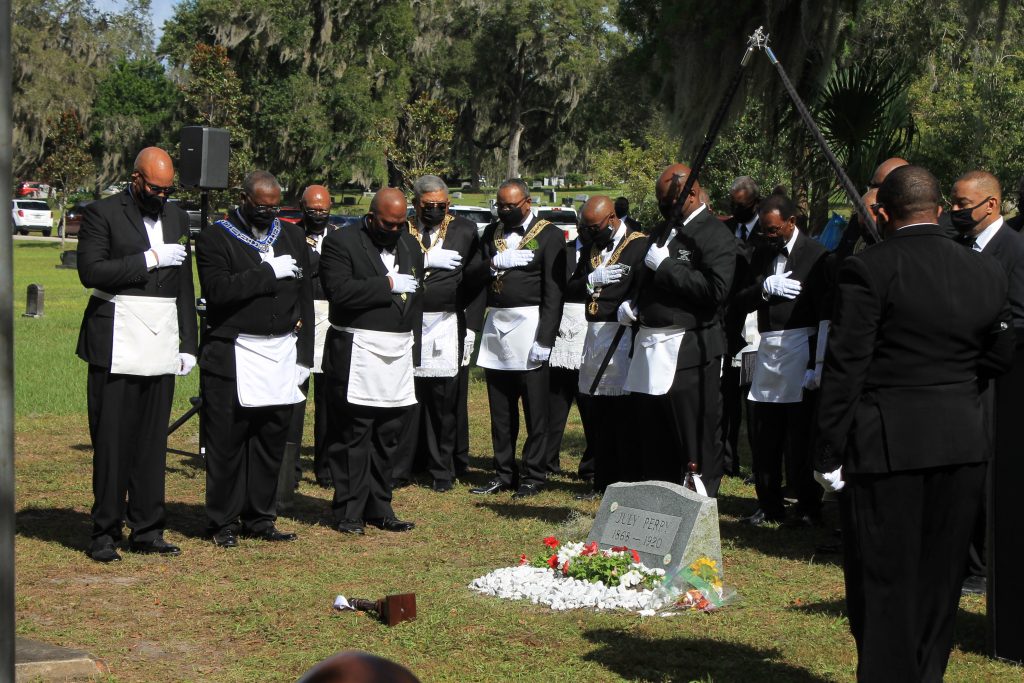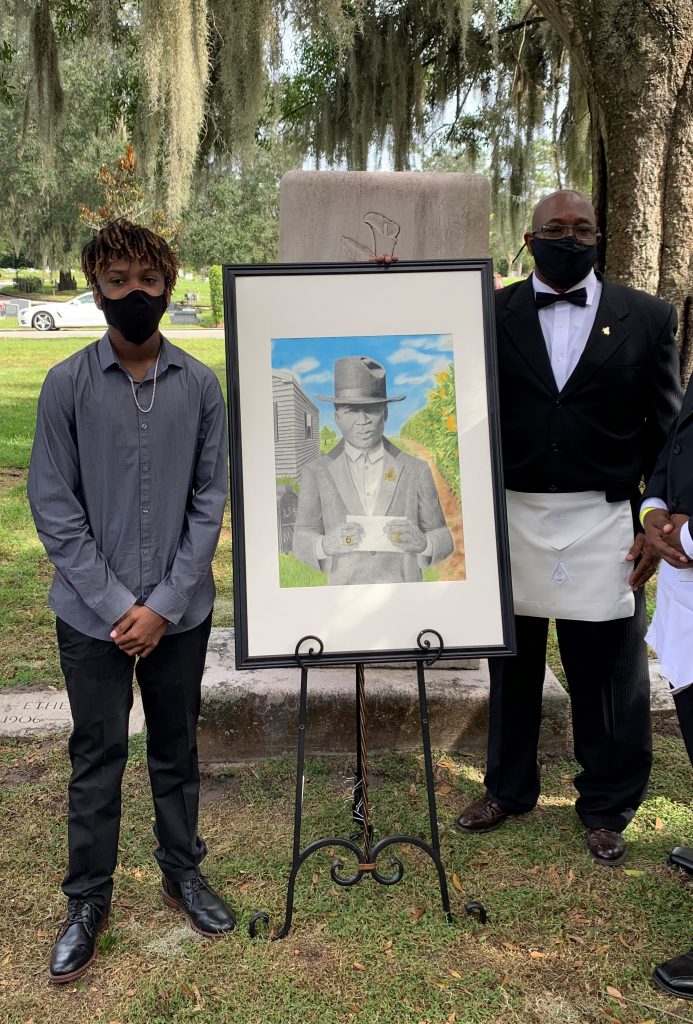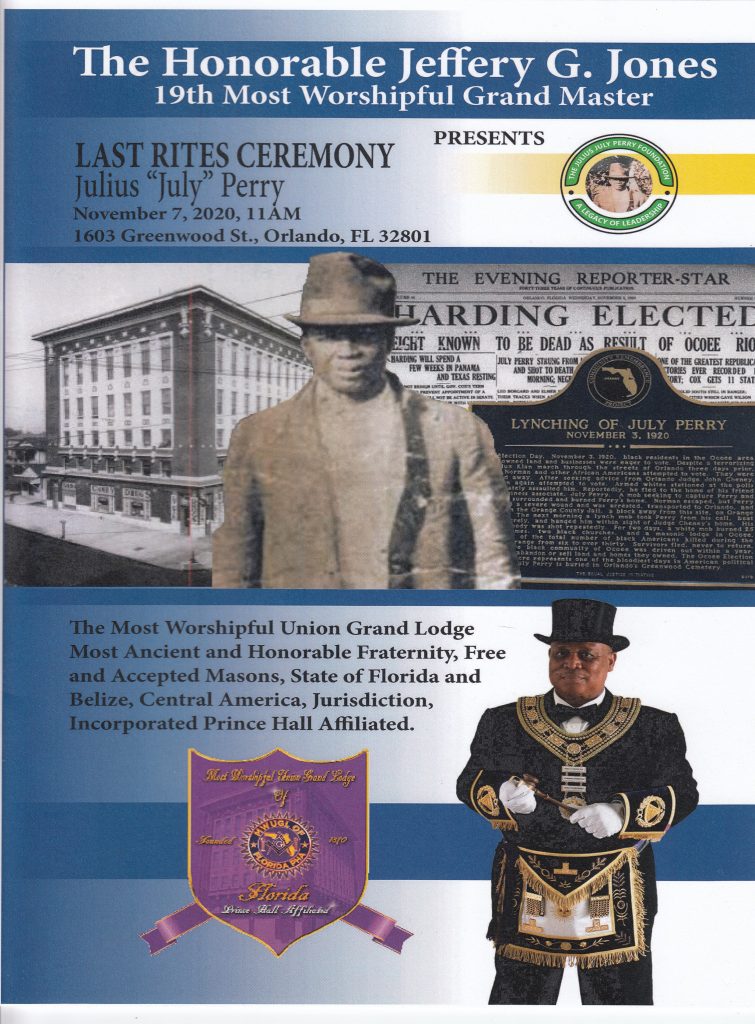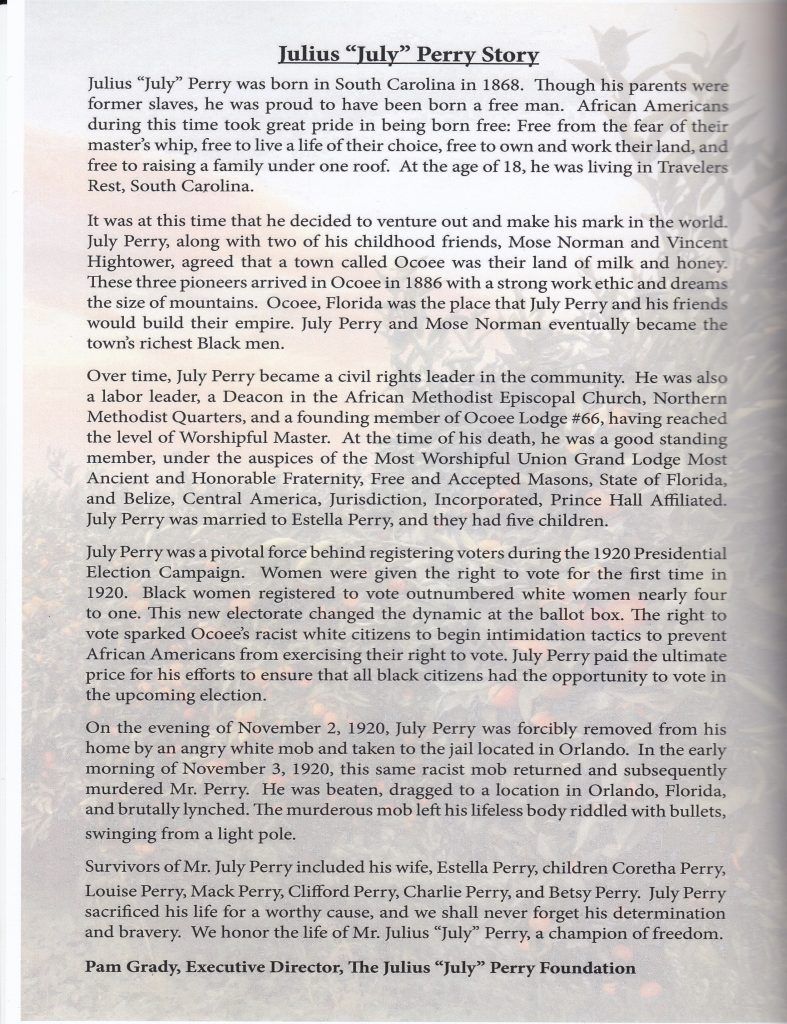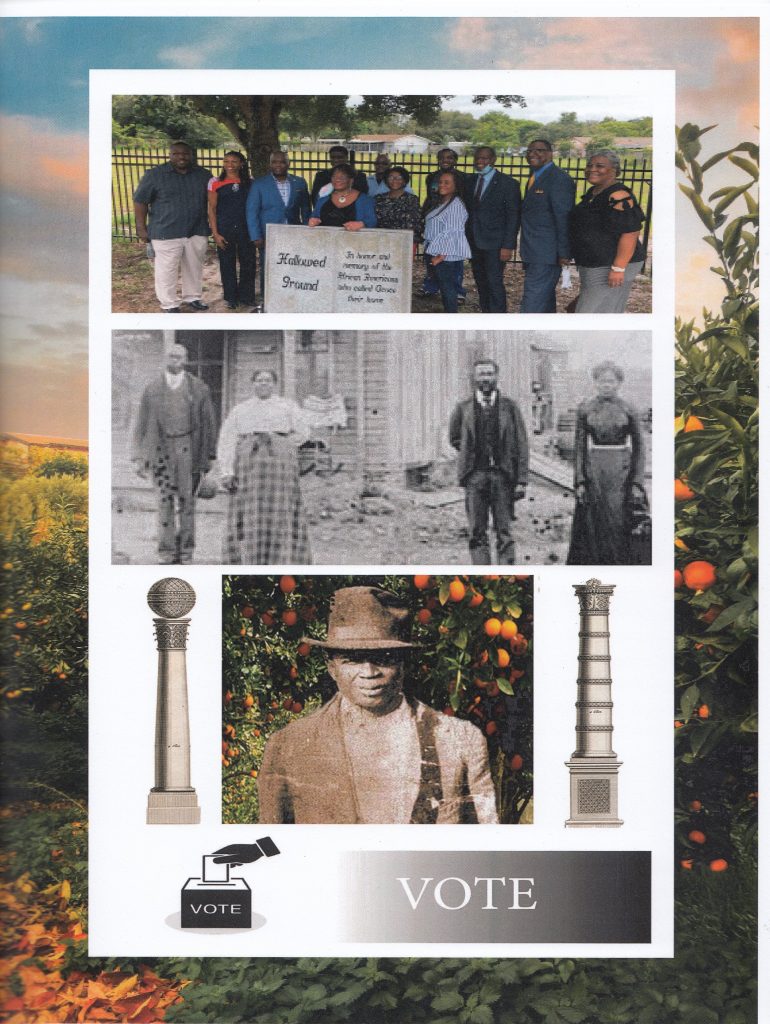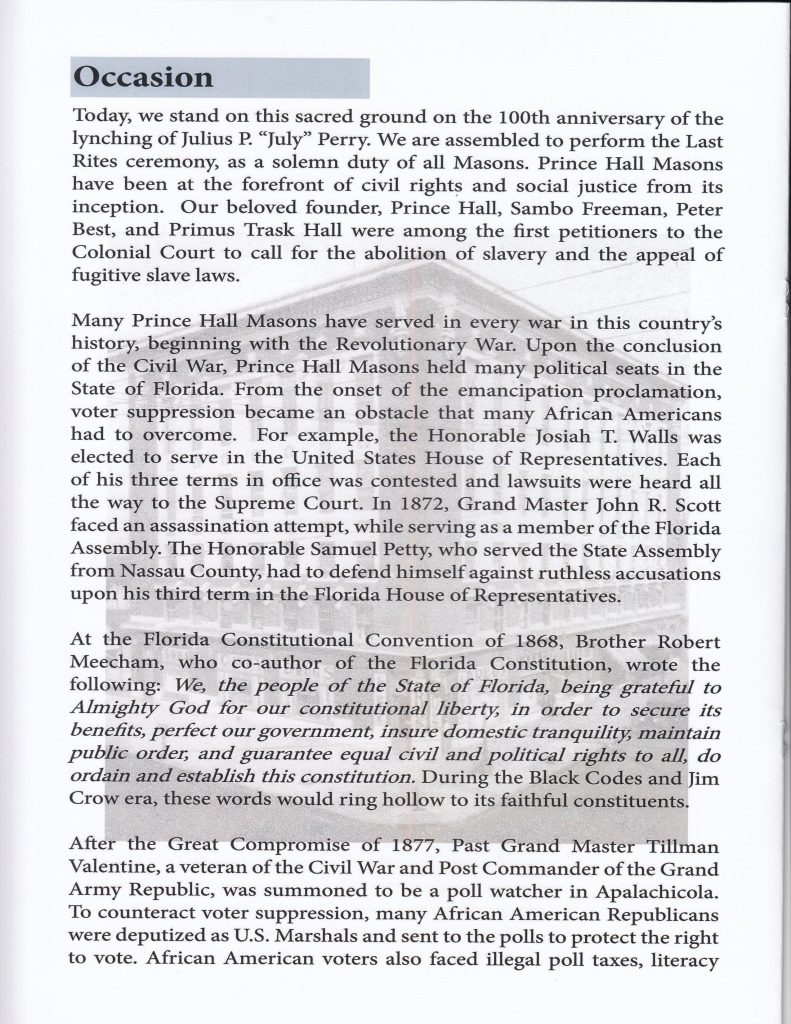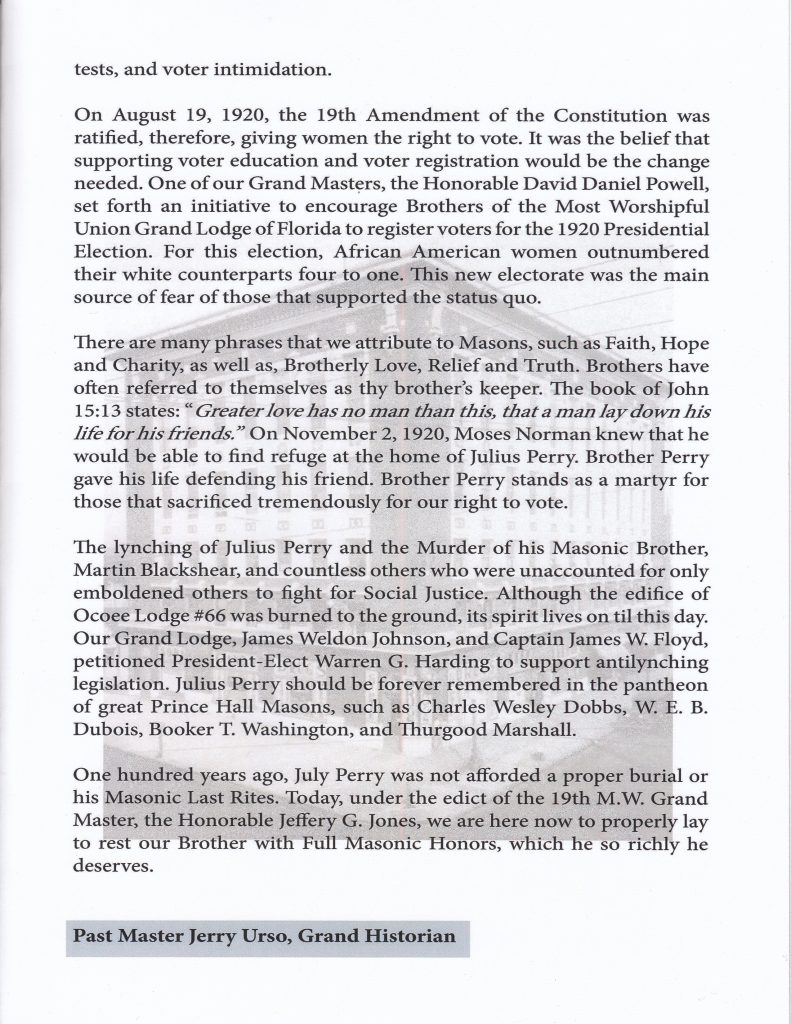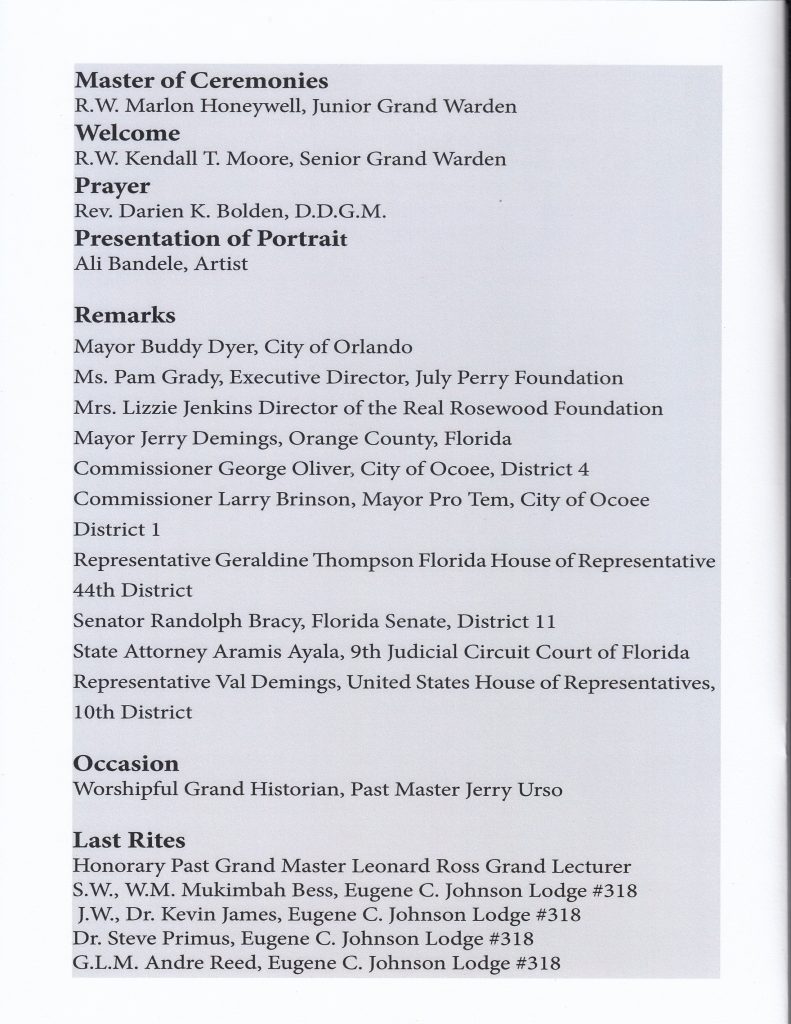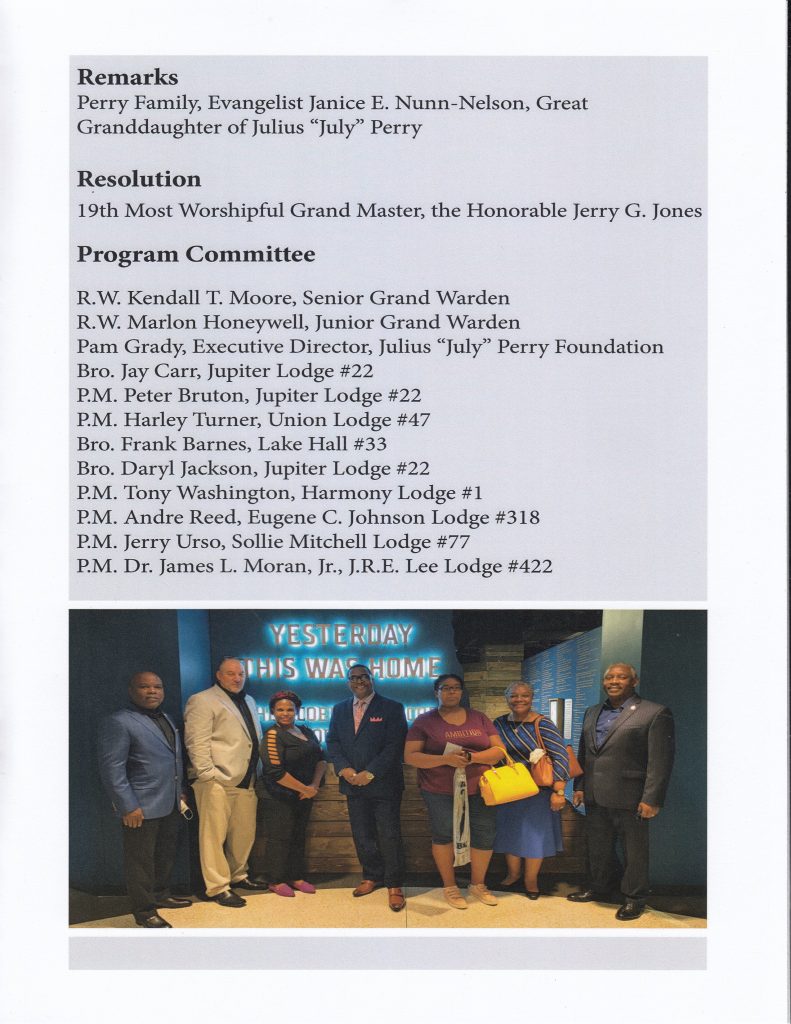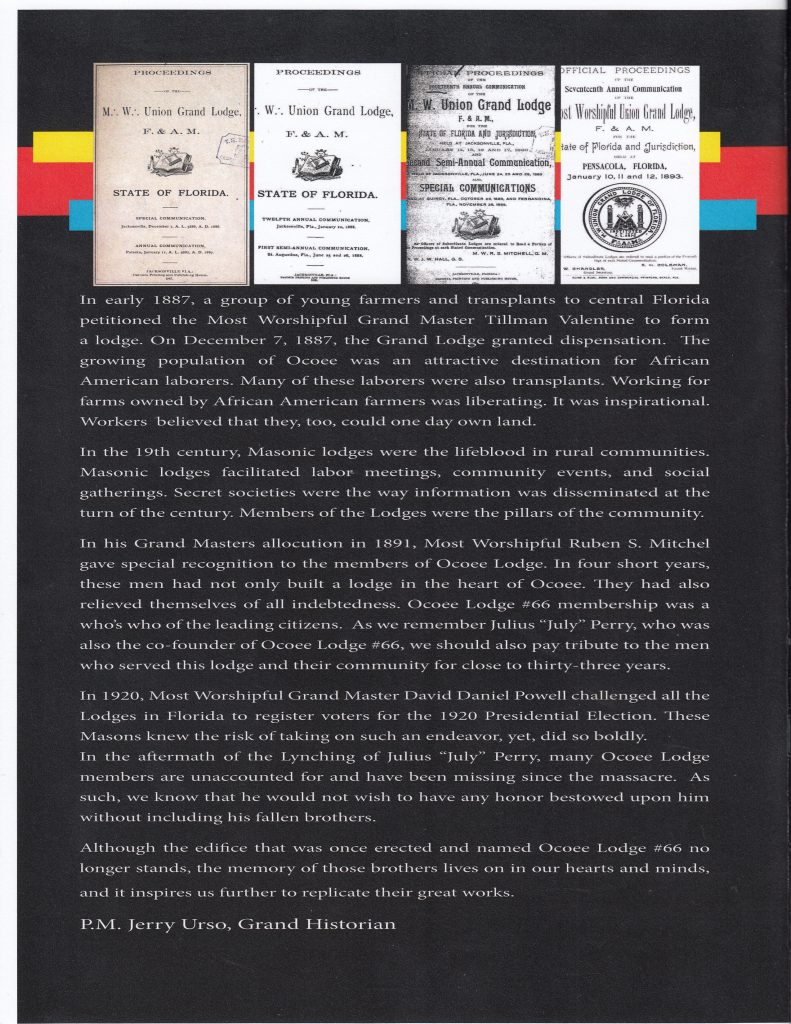Chapter 14: Framing Events
By the early 1980s, Ocoee could no longer maintain the façade that “there is no trouble here,” a position that Central Florida embraced in the immediate aftermath of the massacre, and one that Ocoee sustained, in part, by its reputation as a sundown town. As the effects of the Civil Rights Act of 1964 and the Voting Rights Act of 1965 percolated through the South, Blacks moved into physical spaces, economic positions, and political offices that had been denied to them since the end of Reconstruction. In Orange County, that meant buying homes in Ocoee, establishing businesses in the town, and accepting jobs in the city bureaucracy before finally winning elections at the end of the second decade of the 21st century. With each milestone, the history of Ocoee became more difficult to ignore. As the centennial of the massacre approached, the demand for a reckoning gained momentum. Six milestone dates frame the greater community efforts to bring the Ocoee Massacre out of the shadows and initiate the potential for racial healing.
1990s: Democracy Forum, Rosewood
In the late 1990s, a multi-racial group of concerned Central Florida activists created the Democracy Forum which began researching the history of the election violence of 1920. This group was the first to label the event as a massacre rather than a riot. Their characterization of the violence was based on definitions commonly used in the social sciences, but the change in language and implications was met with strong local resistance.
The push to investigate Ocoee’s racial history occurred simultaneously with efforts in the Florida State Legislature to provide reparations to the survivors and descendants of the Rosewood Massacre in 1923.
2003: July Perry Grave Marker
The Democracy Forum located the unmarked grave of July Perry in Orlando’s Greenwood Cemetery. The records of the cemetery chillingly list the cause of his death as “lynching.” With the financial assistance of the West Orange Ministerial Association, a tombstone was placed at July Perry’s grave on November 2, 2003.
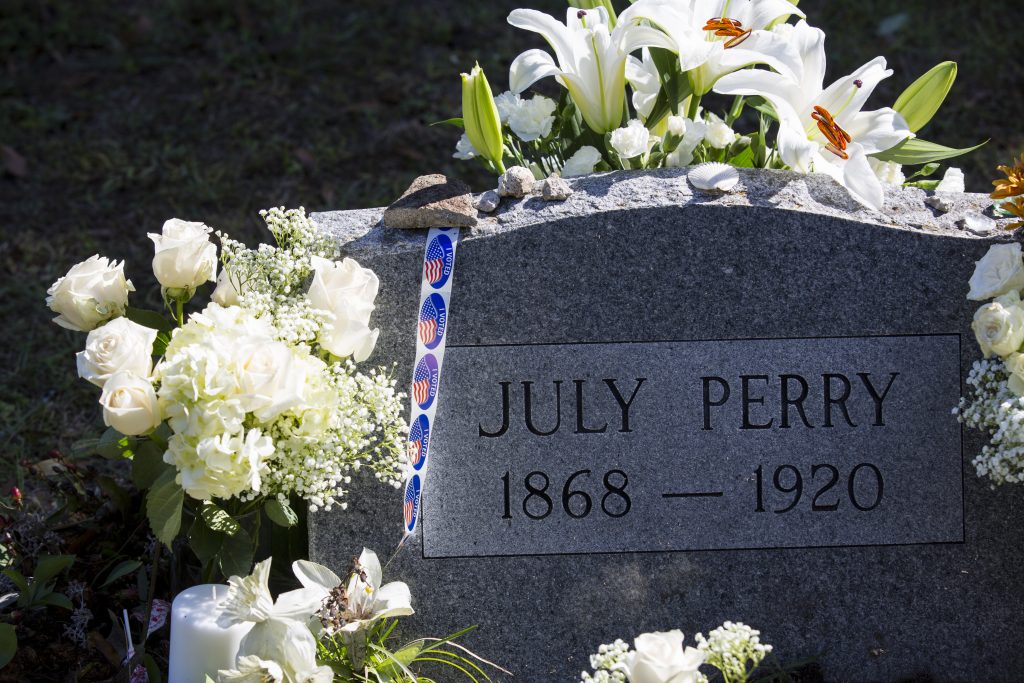
Efforts continued by the Democracy Forum and scholars from Florida universities to research the 1920 massacre and publish the history. Locally, Martin Luther King Day celebrations included remembrances of Ocoee by the few brave enough to explore and commemorate the past. Others began collecting oral histories, producing documentary films, and writing family histories, some of which were more critical and insightful than others.
2018: Soil Collection
In 2018, the Truth and Justice Project of Orange County, which included former members of the Democracy Forum, collected soil at the assumed site of the lynching of July Perry to be placed in the Legacy Museum in Montgomery, Alabama. The museum, which is associated with the Equal Justice Initiative (EJI), documents the history of Blacks in America “From Enslavement to Mass Incarceration.” Orlando Mayor John H. (Buddy) Dyer delivered the jar of soil to be placed in the EJI Legacy Museum’s display of soil from the sites of other lynchings throughout the South.
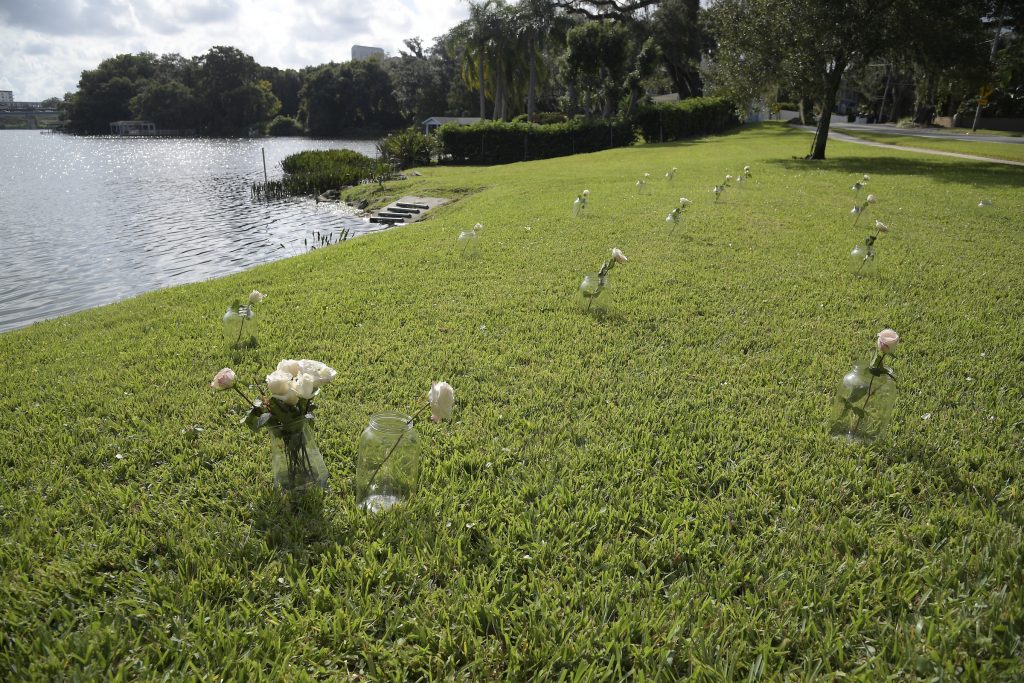
Glass jars containing white roses are lined up in Don Dudley Park in Orlando, Florida. The jars would be filled with soil samples to commemorate victims of lynching. Although Julius “July” Perry was not lynched in the park, the location was chosen based on the account that it occurred in an area overlooking Lake Concord in view of Judge Cheney’s home.
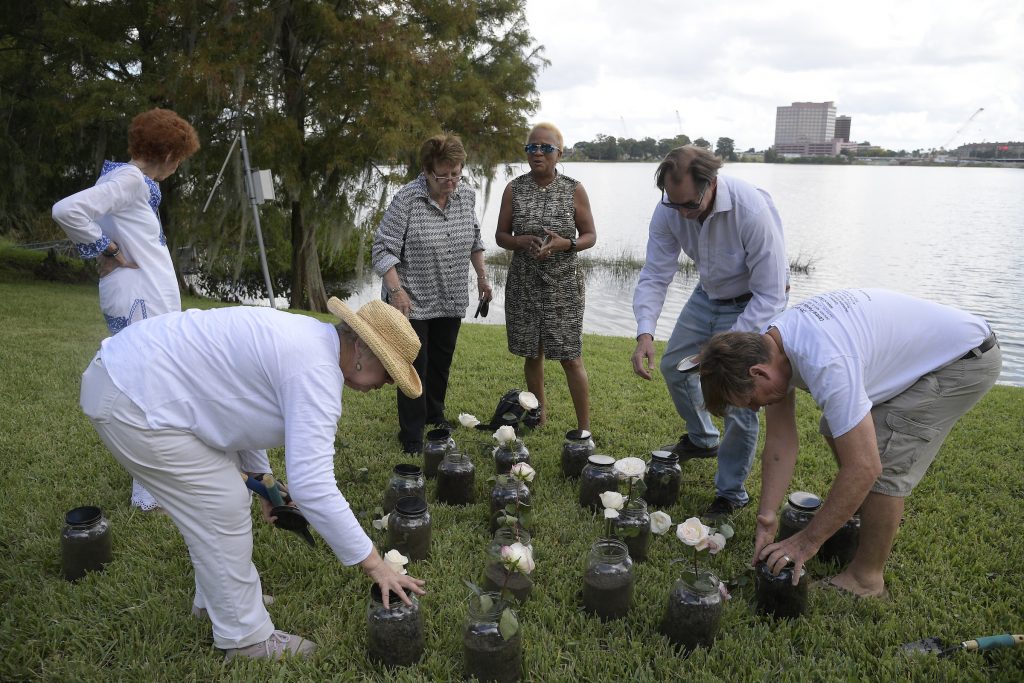
Sandy Cawthern, Jeanine Taylor, Joy Wallace Dickinson, Francina Boykin, Charley Williams and Harry Coverston gather soil samples from Don Dudley Park in Orlando, Florida, on October 8, 2018, and place them into glass jars to commemorate Orange County lynching victims.
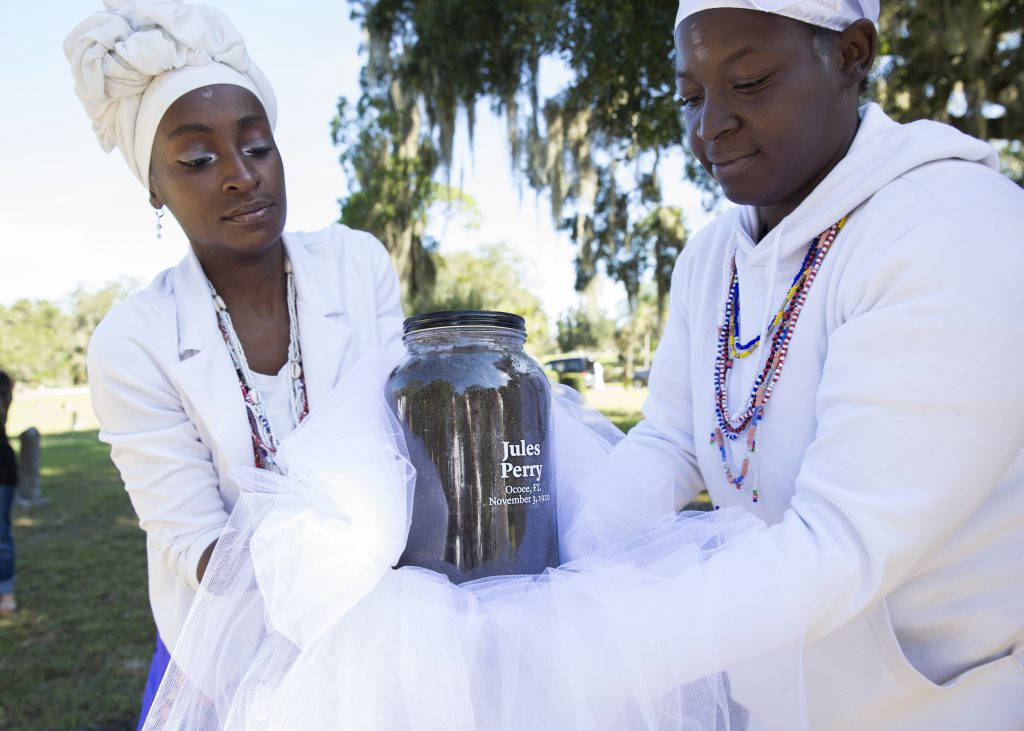
Josie Lemon Allen and Olokunkemi Ojelofun Olamina with a jar of soil in Greenwood Cemetery in Orlando, Florida, on November 3, 2018. The text on the jar reads, “Jules Perry Ocoee, FL November 3, 1920.” The site was chosen because Julius “July” Perry is buried there.
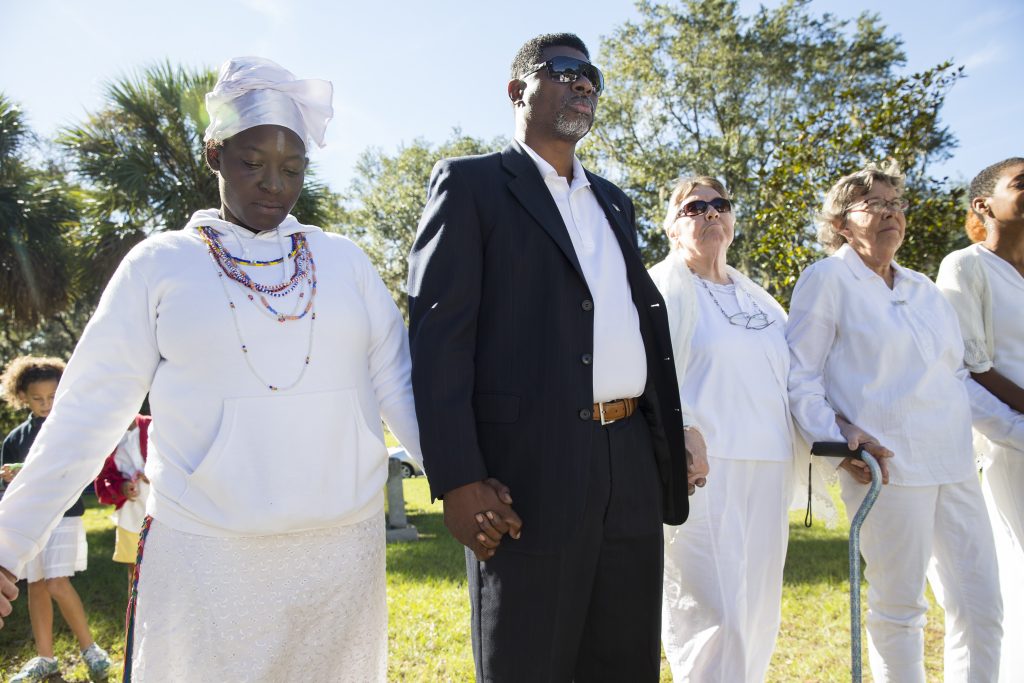
Soil collection at Greenwood Cemetery in Orlando, Florida, on November 3, 2018.
2019, June 21: Dedication of Historical Marker
On June 21, 2019, Equal Justice Initiative founder and director Bryan Stevenson joined Orlando Mayor Buddy Dyer, Orange County Mayor Jerry Demmings, Bridge the Gap Coalition Director, Josie Onifade Lemon Allen, and descendants of July Perry in the dedication of an historic marker on the grounds of the Orange County Regional History Center. On one side of the marker, the story of the lynching of July Perry and the election night massacre is told. On the other side of the maker is a brief history of lynching in the United States.
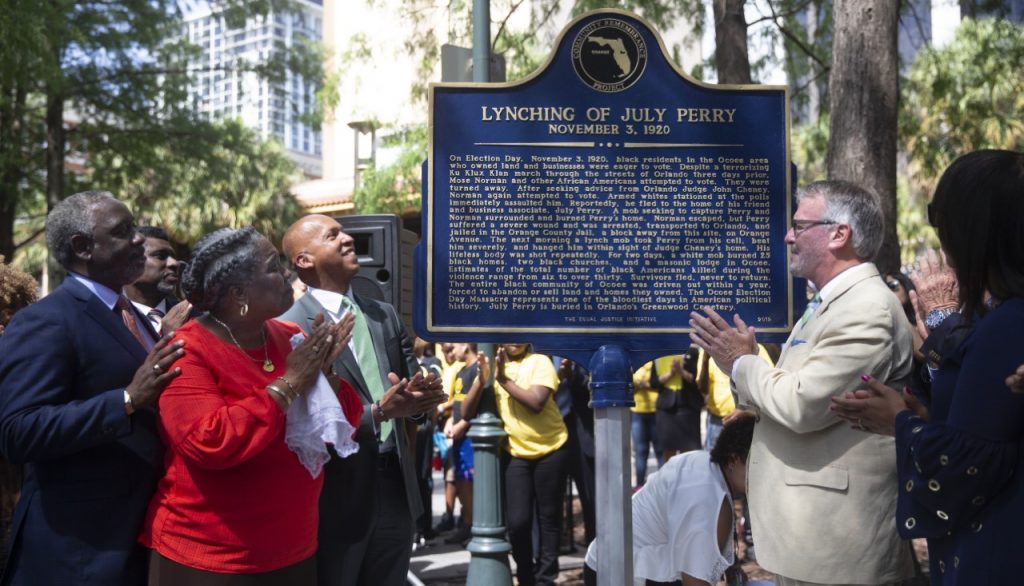
On June 21, 2019, a historical marker was unveiled in Heritage Square outside of the Orange County Regional History Center in Orlando, Florida, to honor July Perry.
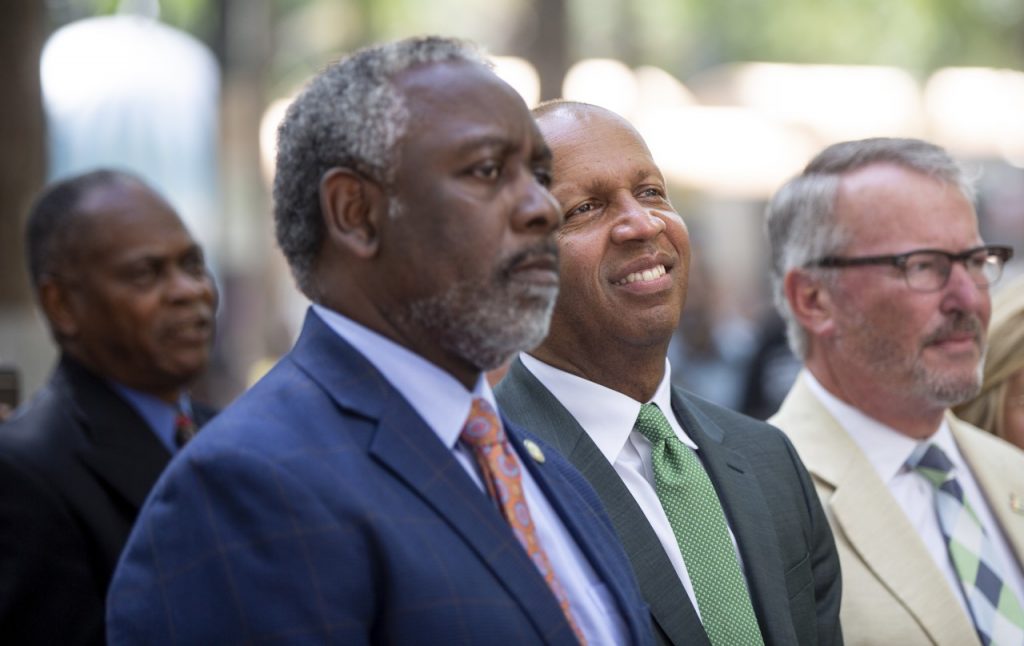
Some of the speakers at the ceremony included Orange County Mayor Jerry L. Demings, Executive Director of Equal Justice Initiative Bryan Stevenson, and Orlando Mayor John Hugh “Buddy” Dyer.
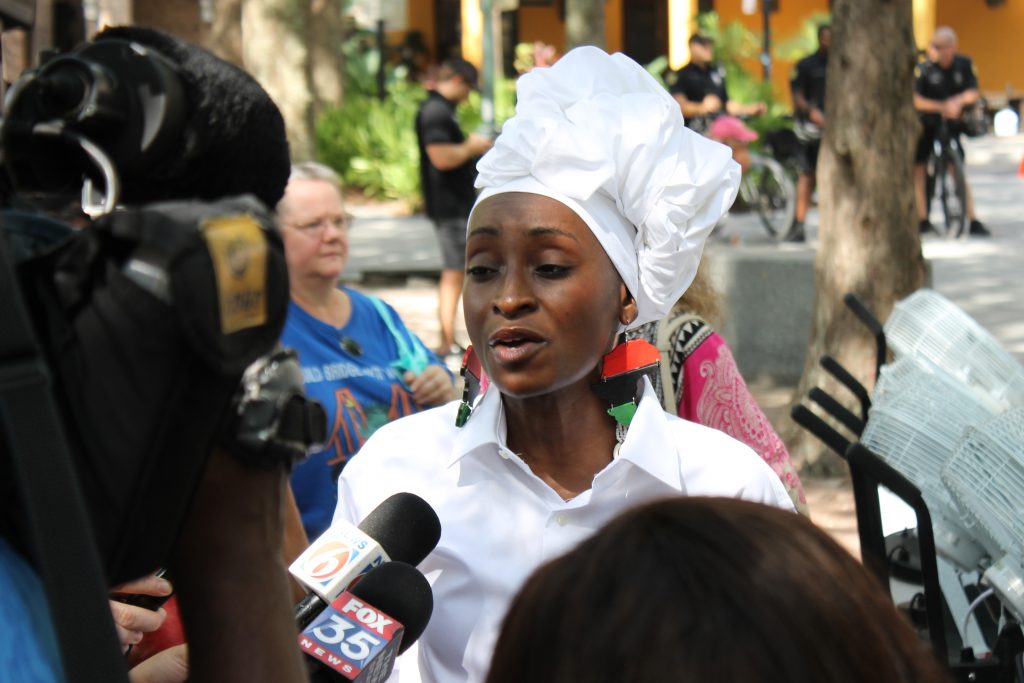
Executive Director of Bridge the Gap Coalition Josie Lemon Allen speaks to the media. The marker was placed in partnership with the Truth and Justice Project of Orange County, Bridge the Gap Coalition, the City of Orlando, Orange County Government, Orange County Public Library System, and the Orange County Regional History Center.
2020, November 1-6: Ocoee Week of Remembrance
The Ocoee Week of Remembrance occurred in the City of Ocoee with events on each of four nights focusing on telling the Ocoee story, honoring the memory, healing the wounds, and unveiling the historic marker.
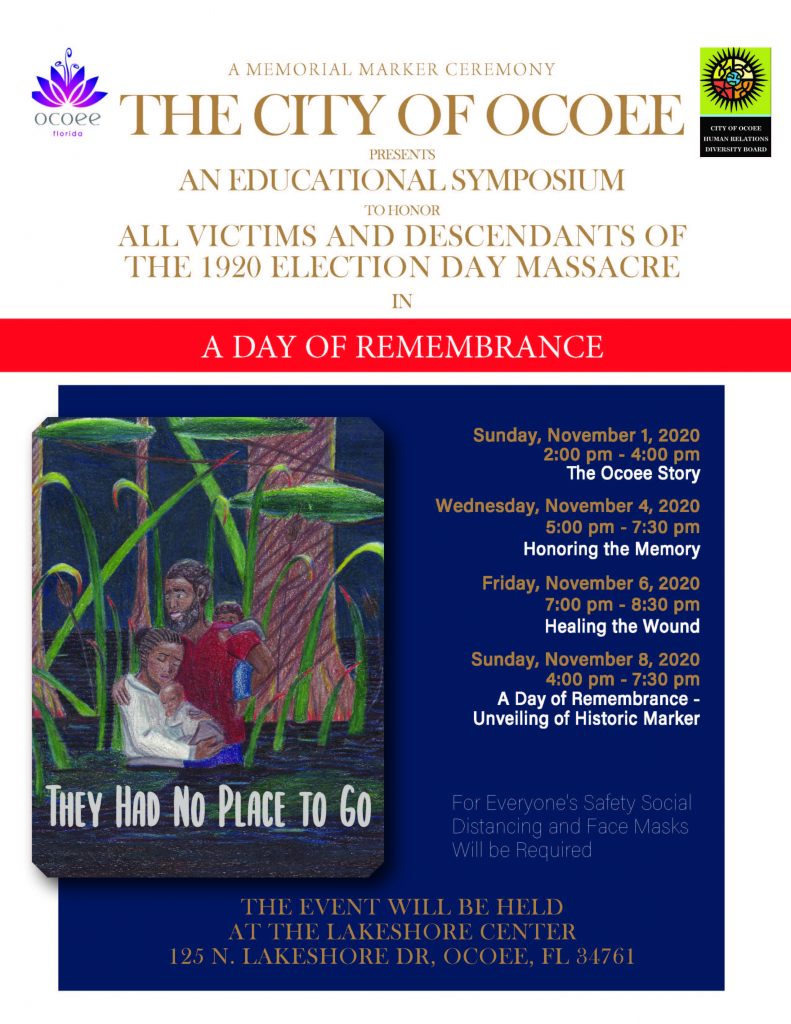
From November 1 to November 8, 2020, the City of Ocoee’s Human Relations Diversity Board hosted an educational symposium to honor all victims and descendants of the 1920 Election Day Massacre. Events were open to the public and were held at the Ocoee Lakeshore Center at 125 North Lakeshore Drive. Attendees were required to wear face coverings and socially distance due to Covid-19.
DAY 1 – The Ocoee Story
NOVEMBER 1, 2020 – 2:00pm – 4:00pm
Tell the Ocoee Story – Walk through the history of Ocoee, learning what happened on that night, November 2nd, 1920 through today. We learn through history and why that is important.
DAY 2 – Honoring the Memory
NOVEMBER 4, 2020 – 6:00pm – 8:00pm
Honoring the Memory – Join us on a Memorial Walk around the lakefront of Ocoee City hall to honor the memory of those lost during the 1920 Voting Massacre and declare “Never Again!!”
DAY 3 – Healing the Wound –
NOVEMBER 6, 2020 – 7:00pm – 8:30pm
Healing the Wound – Explore with us how our small city has healed over the decades, which has not always been easy. We must move forward by learning. From 7:00 – 8:30 we welcome you for an Interfaith Service.
DAY 4 – A Day of Remembrance
NOVEMBER 8, 2020 – 4:00pm – 7:30pm
A Day of Remembrance – Join us for our final, but most exciting day. Learn from guest speakers and descendants and conclude with the unveiling of the historic marker.
2020, November 7: Masonic Burial Ritual
The Most Worshipful Union Grand Lodge Most Ancient and Honorable Fraternity, Free and Accepted Masons, State of Florida and Belize, Central America, Jurisdiction, Incorporated Prince Hall Affiliated (founded 1870) ended the centennial commemoration on Saturday, November 7, 2020, with a Masonic burial ritual at the grave of July Perry. Hastily buried in 1920, Perry, a Mason in the Ocoee Prince Hall Lodge, did not receive the burial ritual at the time of his interment. In addition to the Prince Hall Masons from across the state, elected officials, members of the public, and the descendants of July Perry gathered to join in and observe the solemn ceremony that served as a fitting conclusion to the year-long commemoration events.
Program from Last Rites Ceremony for Julius “July” Perry
Armstead, Cathleen L. “Competing Narratives, Fragmented Community: Stories of the Ocoee Massacre of 1920.” Selected Annual Proceedings of the Florida Conference of Historians 2000/2001 (2002): 57-71.
White, Bianca and Sandra Krasa, director, producer and editor. Ocoee: Legacy of the Election Day Massacre. Gainesville: University of Florida. 2002.
